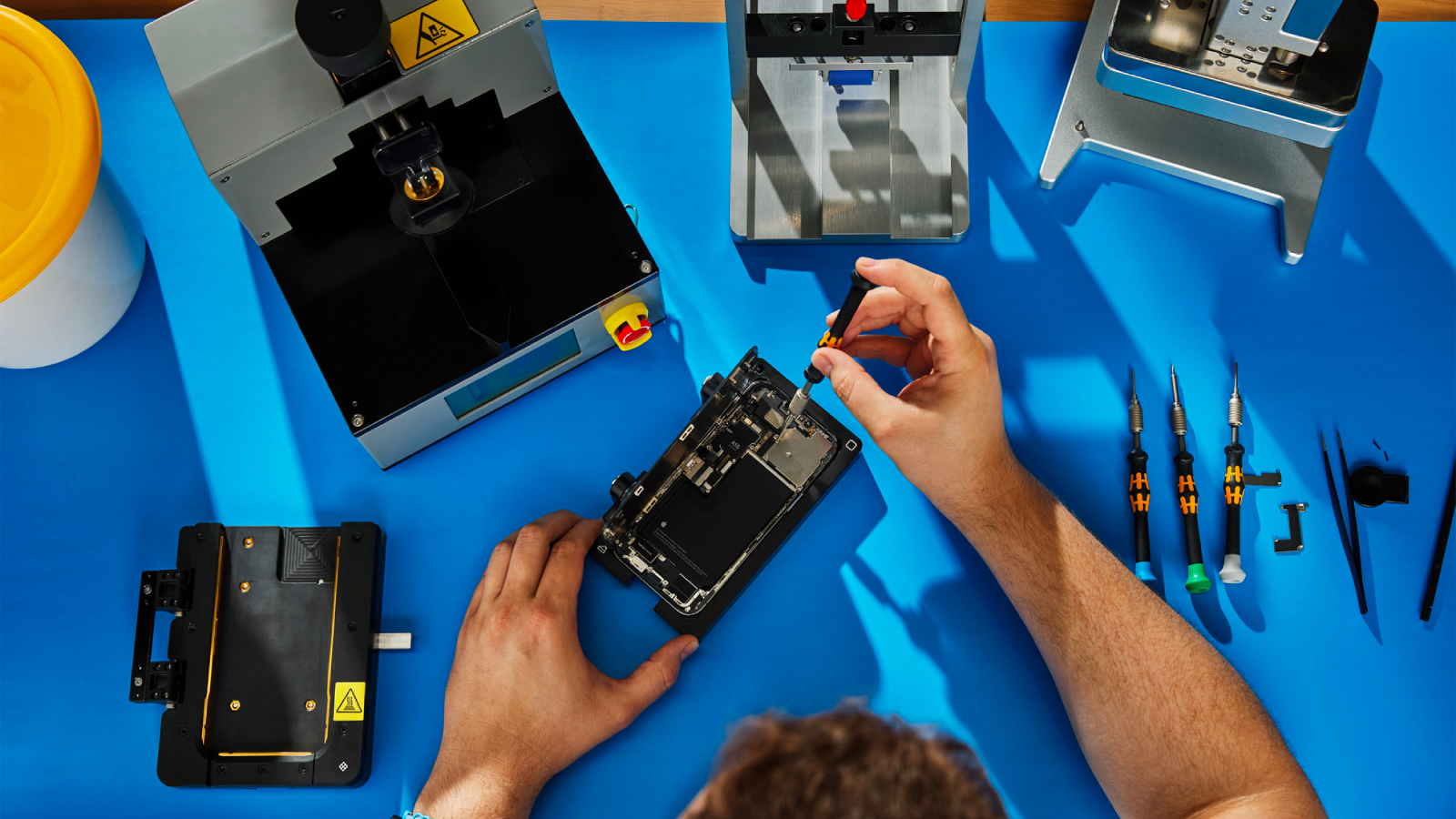
iFixit's petition calls attention to some of the "blocks" that manufacturers have put in place that prevent customers and independent repair shops from repairing their electronics, such as proprietary screws or repairs that require software authentication, which is a method that Apple employs. iFixit wants the FTC to consider the following rules:
- Consumable components should be replaceable and readily available throughout a product's usable lifespan.
- Components that commonly break should be replaceable and readily available as repair parts.
- Consumers should be able to choose to take damaged products to a repair shop of their choice, or perform a repair themselves.
- When a manufacturer discontinues support for a product, its key functions should remain intact, and an independent repair shop should be able to continue to perform repairs.
- Identical components from two identical devices should be interchangeable without manufacturer intervention. (This is not the case with Apple devices).
- Independent repair shops should not be required to report customers' personally identifiable information to the manufacturer.
In France, Right to Repair laws require manufacturers to provide a device repairability score that gives context on how difficult or easy it is to repair, and iFixit says that the FTC should adopt a similar policy in the United States.
"Consider this a request for the FTC to stretch its arm out," reads iFixit's blog post on the petition. The site acknowledges that developing and enforcing any kind of rule could take years, but it is hopeful that the FTC will consider the request.
Apple in August supported California's Right to Repair law, drawing praise from iFixit, but there is no equivalent federal right to repair mandate at this time. Apple in October endorsed a push for nationwide Right to Repair law that "balances repairability with product integrity, usability, and physical safety."
Apple was supportive of California's law in particular because it requires parts to be sourced from the manufacturer, and it does not allow for parts from third-party sources. Notably, California's law does not have some of the specific provisions that iFixit is proposing, such the option to swap components from two identical devices or the option to conduct repairs without tying components to a device's IMEI.
While iFixit has lauded Apple for backing California's Right to Repair law, the site in September lowered the iPhone 14's repairability score from a 7/10 to a 4/10 because of the way that Apple ties repair components to a specific device by requiring validation.
Tags: iFixit, Right to Repair
This article, "iFixit Urges FTC to Establish Stronger Right to Repair Rules" first appeared on MacRumors.com
Discuss this article in our forums
source https://www.macrumors.com/2023/11/14/ifixit-ftc-right-to-repair-rules/



0 Comments